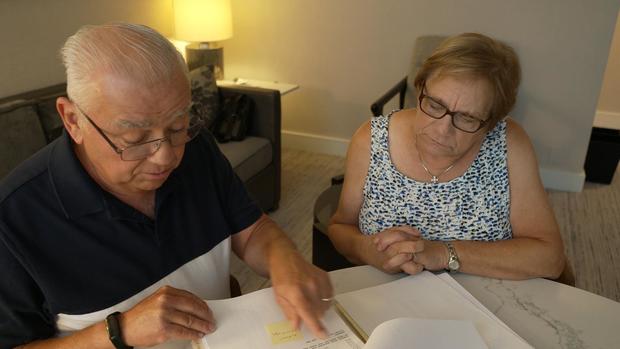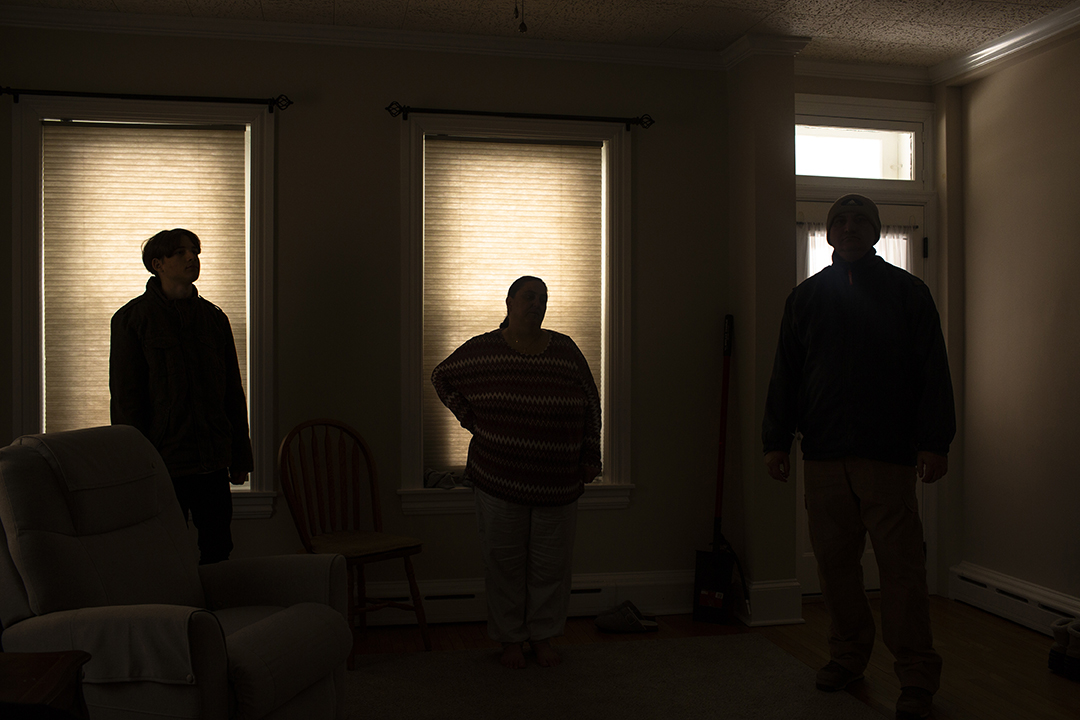Social Security recipients struggle to pay back agency after unexpected overpayments
Roy Farmer was 11 years old when his family last received Social Security benefits for him. Farmer has cerebral palsy; as a child, he had leg braces and couldn't walk.
More than two decades ago, Social Security determined he was no longer medically eligible for benefits. His family received several thousand more dollars while Farmer's mother appealed the decision. The appeal was eventually denied, and the money sent to the family over the course of the appeal was deemed an overpayment. Two years ago, Farmer learned that the Social Security Administration expected him to pay back that excess money his mother received when he was a child.
Farmer is one of about a million people getting billed each year over miscalculated payments from the Social Security Administration. Retirees and disabled workers are being told to pay up, and it often doesn't matter whether they're at fault or not.
How much has the Social Security administration overpaid people?
The Social Security Administration has a balance of more than $20 billion in overpayments, according to a November 2022 report by the agency's inspector general. A spokesperson said the agency is "required by law" to recover overpayments.
"Our payment accuracy rates are high," the Social Security Administration said in a statement, yet "even small error rates add up to substantial improper payment amounts."The agency said its privacy rules prevent it from commenting on individual cases.
During testimony before a congressional committee on October 18, Social Security Administration Acting Commissioner Kilolo Kijakazi said 1,028,389 people were sent overpayment notices in the 2022 fiscal year and 986,912 in fiscal 2023.
Some of the people who received overpayments owe tens of thousands of dollars. Farmer, whose mother received Supplemental Security Income benefits on his behalf when he was a child, was told he owed $4,902, dating back to when he was 11.
Farmer's had surgeries and treatments for his cerebral palsy and says he can now live a "more or less normal life, with some limitations." He works full time and said he's never claimed disability benefits as an adult.
How do Social Security benefit overpayments happen?
Some overpayments happen because a recipient's income is more than what is allowed or because their living situation or marital status changes, according to the Social Security Administration.
Overpayments can happen because a Supplemental Security Income recipient has more resources than the allowable limit. In some overpayment cases, people who are no longer considered disabled continue to receive benefits.
The benefits miscalculation can also happen because the Social Security Administration determines someone's benefits using incorrect or incomplete information.
A recent government scorecard for one Social Security program found hundreds of millions in Supplemental Security Income overpayments last year were "within agency control."
"We were aware of information but failed to take action, or we took incorrect action when the recipient or third-party provided requested information," the program scorecard notes.
Jean Rodriguez, 73, started getting her retirement benefits in 2014. Four years later, she was asked to come to the Social Security office in Virginia Beach, Va., where she learned that she'd received benefits based not only on her salary, but on the salaries of several other people as well.
"Somewhere along the line, they made a combination of four other people in addition to my numbers," she said.
She was told she owed $72,000 in overpayments.
What happens when there's an overpayment?
Rodriguez was told she needed to pay the money back because the Social Security Administration had determined she could afford to do so. She and her husband, Glenn, own their own home and Glenn gets a pension from the Navy.
The couple told "60 Minutes" they'd been waiting four years to appeal their case before an administrative law judge who works for the Social Security Administration. Rodriguez had not gotten a retirement benefits check in two years, she said, because the agency had been recouping the money she owes.
The Social Security Administration told Roy Farmer he had to pay back the $4,902 overpaid to his mother not because the overpayment was his fault, but because the agency believes he has the financial ability to pay. He says he does not.
"That much is about a sixth of my annual take-home pay," Farmer said.
He told "60 Minutes" he'd spent four months waiting to appeal his case before an administrative law judge.
Chicago couple Steven and Becky Sword got a letter from Social Security last year. The notice said they had 30 days to repay $51,887 they'd been overpaid.
They're 62 and have worked full-time most of their lives. When "60 Minutes" met him in August, Steven Sword was making $16 an hour as a security guard on the overnight shift at a condominium complex. Becky Sword works days as an occupational therapy assistant in a nursing home. They worried they'd lose their home when they received the overpayment notice.
Steven Sword has been dealing with the effects of a pancreatic disease for years. He says it nearly killed him in 2016 and he was in the hospital for around 100 days. He started getting Social Security disability checks in 2017 as he recovered and began returning to work.
"Our mistake is your mistake."
Social Security's rules can be complicated. Becky Sword faxed her husband's paystubs to the agency so it could monitor his earnings and eligibility. She kept the fax receipts.
Social Security sent the couple a letter, dated Oct. 16, 2020, saying it had increased Steven Sword's benefits "to give him credit for his 2019 earnings," but last year, Social Security told the Swords that Steven shouldn't have gotten any money at the time when the agency gave him that increase.
According to the Swords, no one at the agency has ever apologized. The couple said they'd been told that they should have realized it was a mistake. The Swords questioned how the overpayment could have happened when they faxed pay stubs to the agency each month.
"And when we asked them, they said, 'Well, they're not looking at that every month.' And then she even said, 'Well, they're not even looking at it every year,'" Becky Sword said. "I would think yearly, at least, they would review it. I could see making a mistake after a few months, but not three years of a mistake. And then they blamed it on COVID. They blamed it on being understaffed. And so to me, right there it's saying it's their fault."
Terry Savage, who writes a nationally syndicated column on personal finance, and Laurence Kotlikoff, a Boston University economics professor, have been trying to draw attention to what they call "Social Security horror stories." They say the problems are caused largely by the Social Security Administration's own mistakes.
"Their mantra, their rule, is 'our mistake is your mistake,'" Kotlikoff said. "And you can appeal it or ask for a waiver. The only reason they will waive this clawback is if you are indigent: really, really poor."
Can the Social Security overpayment issue be fixed?
Overpayments have happened for decades, causing people a lot of financial pain, but fixing this problem has never been a high priority on Capitol Hill. In 2015, Congress did approve a measure to reduce overpayments by giving Social Security more timely access to payroll data. But eight years later, the agency still hasn't put the new system in place.
Aging technology and staff shortages have taken a toll on Social Security. Last year, the agency's workforce hit a 25-year low as the number of people claiming benefits kept going up.
The Social Security trust fund for retirement and disability benefits is expected to be depleted around 2035 because the benefits being paid out are greater than the payroll taxes coming in.
But Kotlikoff and Savage argue that taking back money from the elderly and disabled isn't going to make much of a dent in that problem. They say there are some simple things Congress and the Social Security Administration could do to alleviate the financial stress caused by overpayments.
"Shouldn't there be a statute of limitations so that, after 18 months, it's their mistake, and they have to deal with it and not the person who mistakenly received and lived on that benefit check?" Savage said.
Tired of fighting the government, the Swords decided to pay their overpayment debt rather than appeal the matter any further. They were planning to hand over most of the $60,000 they'd saved for retirement to the government agency charged with supporting Americans in old age.
All the people "60 Minutes" interviewed for this story had asked Social Security to waive their debts, and all of their requests had been denied. But after "60 Minutes" asked the agency about these cases, Social Security told the Swords, the Rodriguezes, and Roy Farmer that they would not have to pay the money back after all.
The agency says it's now reviewing its policies and procedures regarding overpayments.







